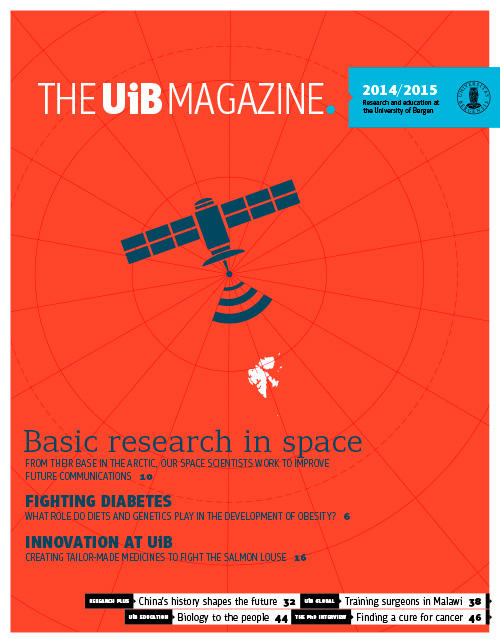China’s history shapes the future
Norwegian emigrants have long traditions of making it in China. But what is needed to succeed in modern China?

Main content
“If one is to succeed in today’s China, one needs to know the country’s history and understand how it shapes the Chinese perception of national identity and place within the wider world,” says Associate Professor Camilla Brautaset of the research group Beyond the Nation State at UiB’s Department of Archaeology, History, Cultural Studies and Religion.
Brautaset heads the research project Merchants and Missionaries. Norwegian encounters with China in a transnational perspective, 1890–1937, which is funded by the Research Council of Norway.
Opportunity for social mobility
After the Opium Wars in the 1840s and 1850s, China was forced to sign a number of treaties giving Western powers privileges in Chinese trade, missionary activities and presence. The then kingdom of Sweden-Norway was amongst the first to sign such a treaty. For many Norwegian emigrants, China represented an opportunity for social mobility not available to them in Norway.
“Eventually, relatively many Norwegians explored this opportunity and did well in shipping, worked in the Chinese customs system or were missionaries,” explains Brautaset.
Not only did the Norwegian missionaries spread the Word of Christ, they also built schools and offered health care services.
“These missionaries’ humanitarian work in the early twentieth century created a template for later Norwegian aid and development work, in China and beyond,” according to the history scholar.
The Chinese customs system also attracted many foreign workers – not only was it one of the main sources of revenue for the Chinese government, it also developed to become an engine for integration – both globally and nationally.
“China’s customs system was almost exclusively led by foreigners during this era. Moreover, the customs system grew to cover infrastructure such as mail distribution, and customs stations were established all over China.”
Shipping was key for Norway in China
However, the main Norwegian business interest in China was the shipping industry. Many Norwegian shipowners and agents settled in China and tasted success.
“Norwegian industry was extremely outward-looking during this period. But this also shows the diversity of Norwegian migration,” says Brautaset. “We hear a lot about Norwegian migration to the United States. But not all Norwegians went west. The stories of Norwegians in China also show how China had become a global meeting place at the end of the nineteenth century.”
The internationalisation of China led both to conflict and collaboration, hybrid cultures and multiple identities – and has left a deep impression on how China sees itself in the world today.
The period from 1839 to 1949, when China was largely controlled by foreign powers, is often referred to as the ‘century of humiliation’ in China. The understanding of how China was humiliated by countries such as the United Kingdom, Germany, the United States and, in particular, Japan is an integral part of history education at all levels in China and shapes the rhetoric of the Communist Party of China today.
“Understanding the emerging nationalism in China today is almost impossible if you don’t understand how the history of China and the outside world has been used to shape a national identity,” says Brautaset.
A shift in the balance of power
Today, China is once again the world’s largest international market. But unlike in the nineteenth century, the balance of power has shifted. China now has a strong global presence and plays a key role in the world economy.
“Irrespective of short-term changes to the Chinese economy, China and the rest of Asia will be shaping most of this century,” Brautaset believes. “As a researcher on China, my prime focus is academic, where the research holds value in and of itself. At the same time, I notice how the growth in Chinese influence creates more interest in knowledge of China, also in a historical context.”
The historian also has some advice to Western businesses wanting to get ahead in China.
“Access to China will be much easier if they know Chinese history, culture and language. In particular there needs to be awareness of the diametrically opposing historical views of China, from inside China itself and from a Western point of view,” she says, pointing out that for the history scholars, the important thing is for students to gain new knowledge of China. “This is why we offer a new course on China and the outside world at the department, covering developments from 1800 until today.”
A small country in a big world
Despite the early missionary and shipping activities, until recently, Norwegian researchers have shown little interest in Chinese history. This is quickly changing. History scholar Camilla Brautaset believes that research from a small country such as Norway can act as a counterbalance to the history research in the larger Western colonial powers.
“My hope is that the histories of a small country’s ties with China can be a valuable addition to the international history research, because it offers different stories and different approaches.”
(Translated from the Norwegian by Sverre Ole Drønen.)
This article was originally published in the UiB Magazine 2014/2015. You can download a PDF of the full magazine or you may browse the magazine online.

